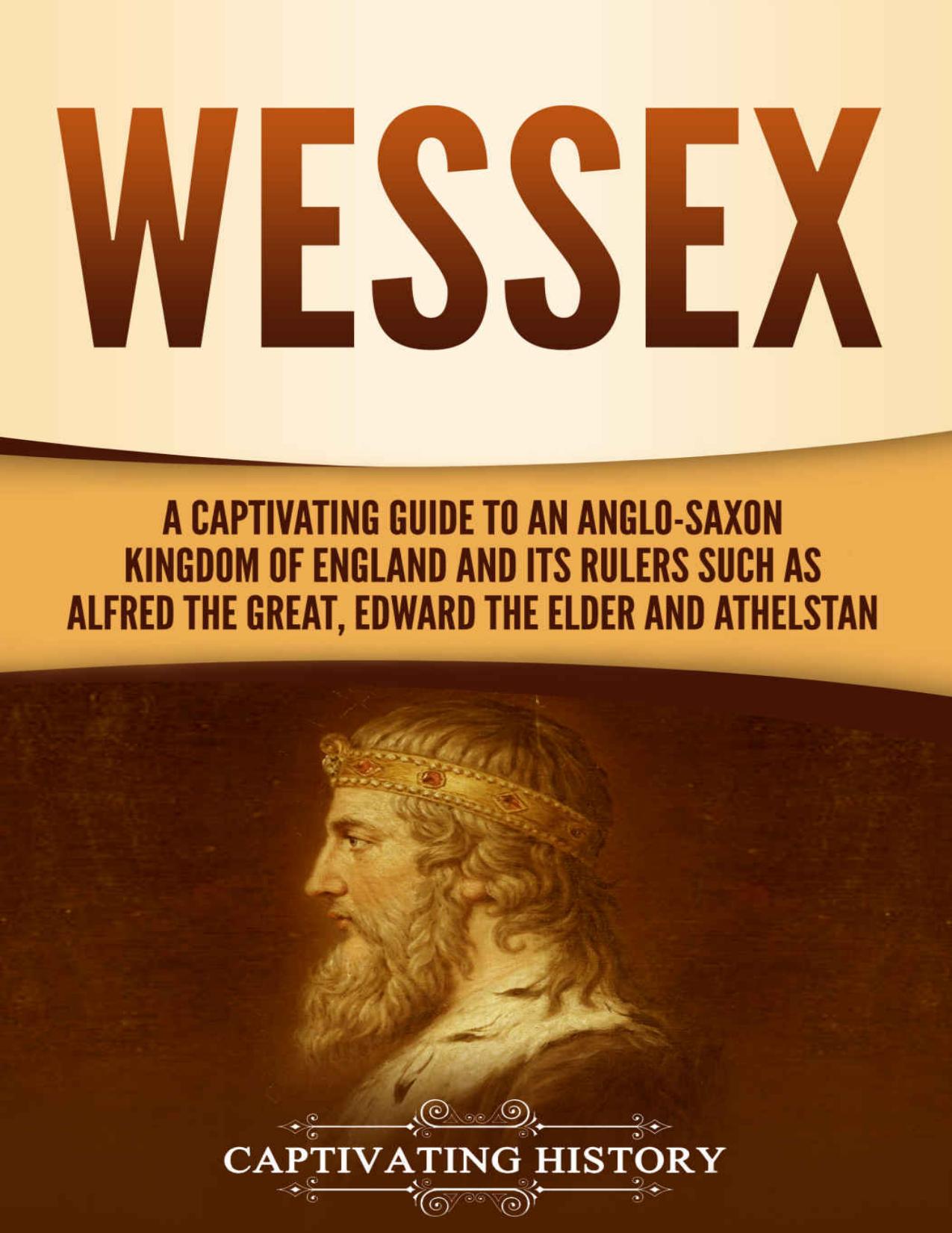Wessex: A Captivating Guide to an Anglo-Saxon Kingdom of England and Its Rulers Such as Alfred the Great, Edward the Elder, and Athelstan by Captivating History

Author:Captivating History [History, Captivating]
Language: eng
Format: azw3, pdf
Published: 2020-05-17T16:00:00+00:00
Chapter 6 â The Royal Brothers
Ethelwulf had a will prepared when he died, which left his kingdom divided between his two eldest sons. His will did not survive the ages; however, Alfredâs did, and it mentions his fatherâs intent. The kingdom was to pass to whichever of his sons survived, Ethelbald, Ethelred, or Alfred. Ethelberht was exempt as he ruled Kent, and it was presumed his heirs would inherit that kingdom. However, scholars cannot agree if this will was intended for the whole kingdom or the kingâs personal possessions. Some even claim both, while others argue that it was unlikely for the whole kingdom to be passed down by a will. Some historians argue that if Ethelwulf left the kingdom in his will, it would have definitely lead to fratricide in the dynastic struggle, which did not happen. It is more likely that the brothers made a deal between themselves to pass the throne to each other. But Ethelwulfâs movable riches, such as money and horses, were divided between his children and the nobles. In addition, one-tenth of his hereditary land was to be given to the poor for the salvation of the kingâs soul. In addition, Ethelwulf ordered three hundred gold coins to be sent to Rome each year.
Ethelbald (r. 855â860)
Ethelbald was the second son of Ethelwulf and his first heir, as Ethelwulfâs oldest son, Ethelstan, had died in the early 850s. Ethelbald ruled alongside his father for the last two years of his life, although some historians see this arrangement differently. The Anglo-Saxon Chronicle doesnât record what happened in the kingdom after Ethelwulfâs return from Rome. The only source of the events we have is Asserâs biography of Alfred the Great, and in it, he claims that Ethelwulf divided his kingdom to avoid a civil war. The most common opinion is that Ethelwulf allowed Ethelbald to rule Wessex together with him, while Kent and the eastern provinces of Essex, Sussex, and Surrey were under the rule of his brother Ethelberht. Other scholars donât agree and prefer to think that the division of the kingdom went even further. They believe that Ethelbald kept his power base and court at Selwood while Ethelwulf ruled only the east of the kingdom, and Ethelberht kept Kent. There is even a third opinion that suggests Ethelbald kept the sole rule of Wessex while Ethelwulf took back Kent and the eastern provinces from Ethelberht.
When Ethelwulf died in 858, Ethelbald continued his rule of Wessex as the sole ruler. As mentioned above, Ethelbald married his step-mother, Queen Judith, but the Anglo-Saxon Chronicle ignores this marriage and does not record it. Asser condemned this relationship as well, calling it disgraceful to God. By his words, not even the pagans practiced such marriages. It is possible that the Chronicle avoids mentioning the marriage because its prestige would cast a shadow over the greatness of Alfred, during whose reign this document was written. However, other than Asserâs condemnation, it seems that the marriage wasnât opposed during the reign of Ethelbald.
Download
Wessex: A Captivating Guide to an Anglo-Saxon Kingdom of England and Its Rulers Such as Alfred the Great, Edward the Elder, and Athelstan by Captivating History.pdf
This site does not store any files on its server. We only index and link to content provided by other sites. Please contact the content providers to delete copyright contents if any and email us, we'll remove relevant links or contents immediately.
The Art of Coaching Workbook by Elena Aguilar(48057)
Trainspotting by Irvine Welsh(20052)
Twilight of the Idols With the Antichrist and Ecce Homo by Friedrich Nietzsche(17705)
Fangirl by Rainbow Rowell(7832)
Periodization Training for Sports by Tudor Bompa(7327)
Change Your Questions, Change Your Life by Marilee Adams(6639)
This Is How You Lose Her by Junot Diaz(5767)
Grit by Angela Duckworth(4734)
Red Sparrow by Jason Matthews(4661)
Asking the Right Questions: A Guide to Critical Thinking by M. Neil Browne & Stuart M. Keeley(4573)
Paper Towns by Green John(4168)
Room 212 by Kate Stewart(4102)
Ken Follett - World without end by Ken Follett(3972)
The Sports Rules Book by Human Kinetics(3585)
Housekeeping by Marilynne Robinson(3401)
The Motorcycle Diaries by Ernesto Che Guevara(3332)
Introduction to Kinesiology by Shirl J. Hoffman(3299)
Exercise Technique Manual for Resistance Training by National Strength & Conditioning Association(3290)
Double Down (Diary of a Wimpy Kid Book 11) by Jeff Kinney(3272)
